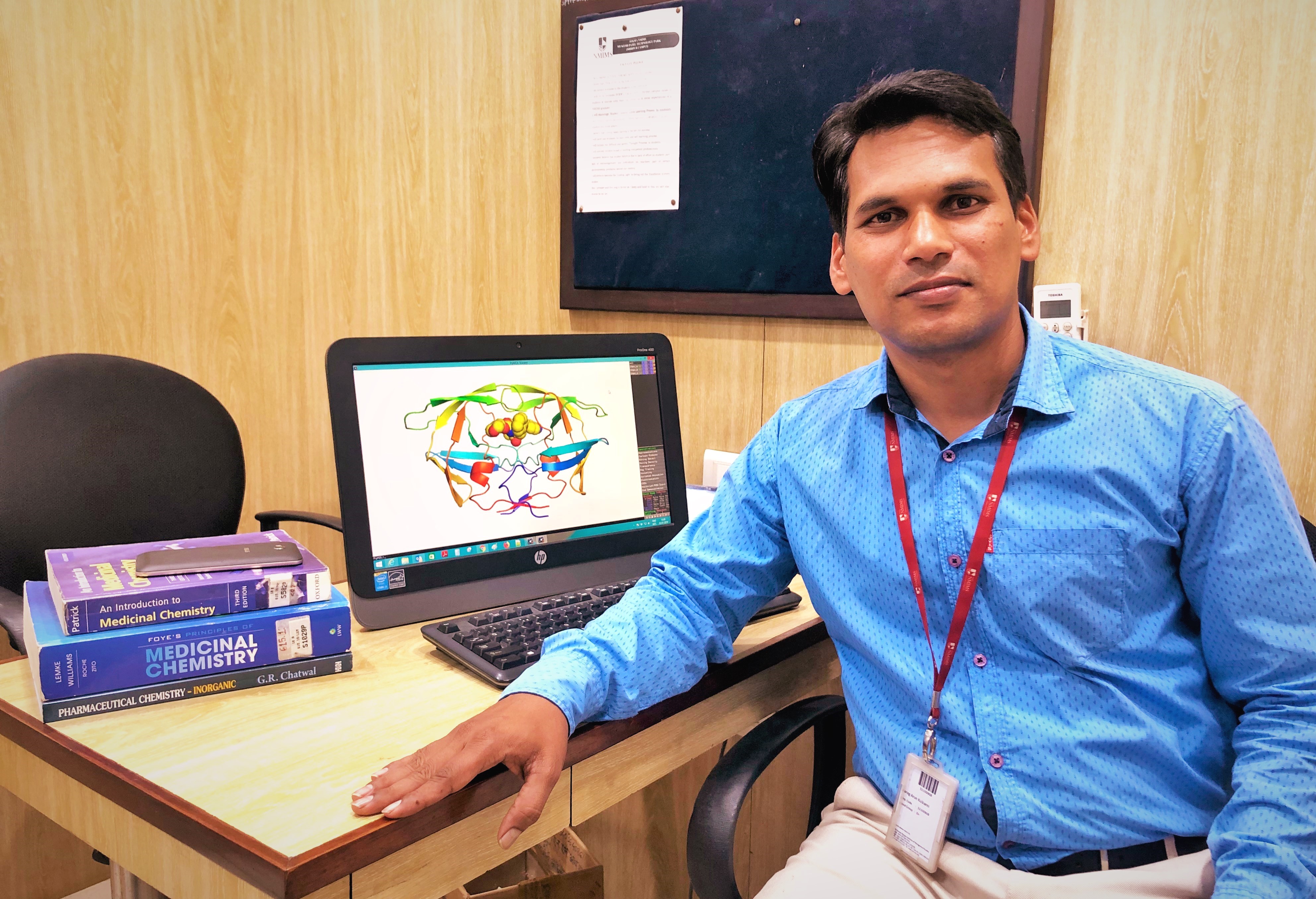

Dr. Ranajit Shinde, Associate Professor at School of Pharmacy & Technology Management, Shirpur Campus awarded Prestigious European Molecular Biology Organisation (EMBO) Fellowship for research on Cholera Superbugs
Superbugs, a multi-drug resistant pathogenic strains,
are expected to kill 10 million lives a year and $100 trillion expenditure by 2050 – reports
Department of Health, United Kingdom.
are one of the ‘biggest threats to the global health’ – revelation of the World Health Organization.
will cause economic damage worse than that of 2008 financial crisis – a report by World Bank
Group.
These predictions will be reality if we do not tackle the problem of superbugs – microbes that cannot be killed by existing antimicrobial agents. A growing number of infectious diseases – such as tuberculosis, malaria, pneumonia, cholera, HIV – may not be cured in future as once effective antimicrobials are becoming ineffective.
Among various diseases, cholera is becoming resistance to the antimicrobial treatment with faster rate. Cholera, an acute diarrheal infection caused by the bacterium Vibrio cholerae. It has been estimated that 1.3 billion people are at risk for cholera in 69 cholera-endemic countries. It has been observed that the strains, O1 and O139 that has caused most of the epidemics are gaining resistance to almost all of the antibiotics. Researchers are working to tackle virulent drug-resistant strains creating cholera epidemics.
"Indiscriminate use of antimicrobial agents will create more and more lethal superbugs. Treatment options in the form of novel drugs will be the most effective way to contain them” says Dr. Ranajit Shinde, Associate Professor at School of Pharmacy & Technology Management (SPTM) of NMIMS University, Shirpur Campus. He has been awarded Short Term Fellowship by European Molecular Biology Organisation (EMBO) for his research visit of 90 days to European Molecular Biology Laboratory (EMBL), Germany for the development of new drugs against antimicrobial resistant strains of V. cholerae.
Dr. Shinde, like many researchers worldwide, is working on the identification of novel drugs against V. Cholerae. "We certainly require new drugs of high potency less toxicity but most importantly they should be made available within short time. The research methodology he adopted will fasten the process of new drug identification.” he added.
3,4-dihydroxy-2-butanone-4-phosphate synthase (DHBPS) inhibitors as new agents for cholera treatment :
Riboflavin biosynthesis pathway has been shown to be essential in Vibrio cholerae. Additionally, this pathway being absent in humans provide an opportunity of identifying modulators without producing off target effects though homologous proteins in human. DHBPS, one of the enzymes of this pathway has been not exploited for the design of anti-bacterial agents, can provide new drugs that are protected from existing antimicrobial resistance mechanisms shown by microbes.
>In this collaborative project Dr. Shinde will design and synthesize the inhibitors at SPTM Shirpur while, they will assayed and co-crystallised at EMBL, Hamburg. "Collective potential of 3D structures of DHBPS, structure based drug design, molecular dynamics as well as co-crystallisation will be harnessed to achieve the high success rate within short term.” he emphasized.
Dr. Shinde had always curiosity in mechanism of drug action, undertook research projects revolving around molecular level interactions between protein and ligands in his doctoral studies at NIPER, Mohali. Postdoctoral research at CSIR-IMTech, Chandigarh helped to gain experience in additional tools for answering biological questions. "The Short Term Fellowship by EMBO will allow to fulfil my quest of identifying novel drugs thereby contributing to the society health. It will help to build myself as an independent researcher and foster international collaborations.” He said.
Students and faculties of SVKM’s NMIMS School of Pharmacy & Technology Management (SPTM) at Shirpur are actively engaged in research related to pharmacy. The school’s faculty has published over 100 articles in high impact factor journals published nationally and internationally.
Around 25 products has been patented and are available for commercialisation. School also has hosted national and international workshops, seminars as well as faculty development programmes.
3, Dr. Ranajit Shinde is currently working as an Associate Professor in Pharmaceutical Chemistry at the School of Pharmacy & Technology Management (SPTM), Shirpur Campus. He has extensive research experience in the field of medicinal chemistry as well as in computational chemistry. He is recipient of CSIR-Nehru Science Postdoctoral Research Fellowship Scheme, which he availed by joining CSIR-Institute of Microbial Technology, Chandigarh. He has completed M.S. and Ph.D. from NIPER, Mohali. He has experience of designing and optimizing inhibitors against various targets such as protein tyrosine phosphatase 1b, prolyl hydroxylase, AKBPR10 using computational methods such as molecular dynamics, pharmacophore mapping and docking. He has published results obtained by these methods in renowned international journals such as Nature and PLOS.